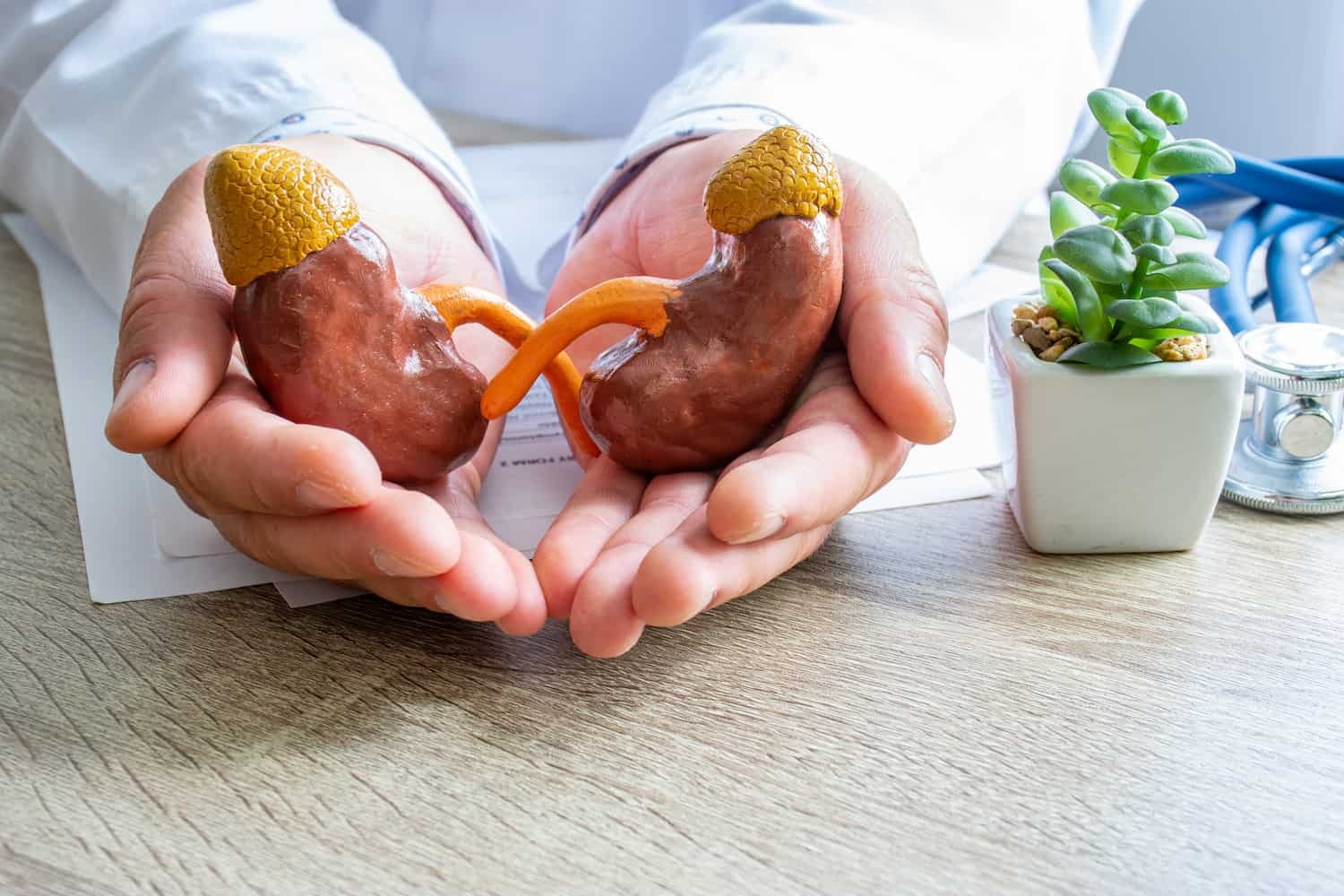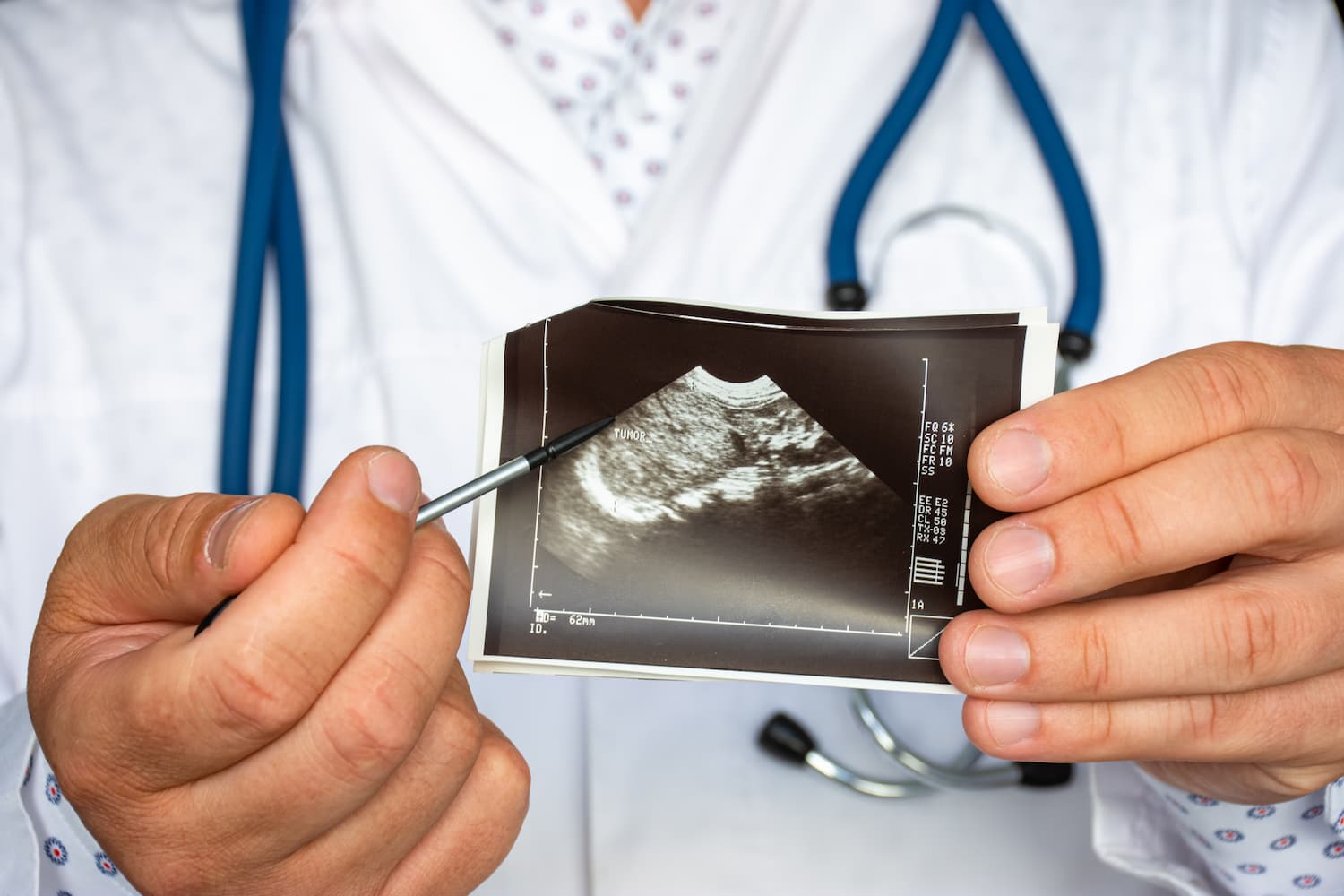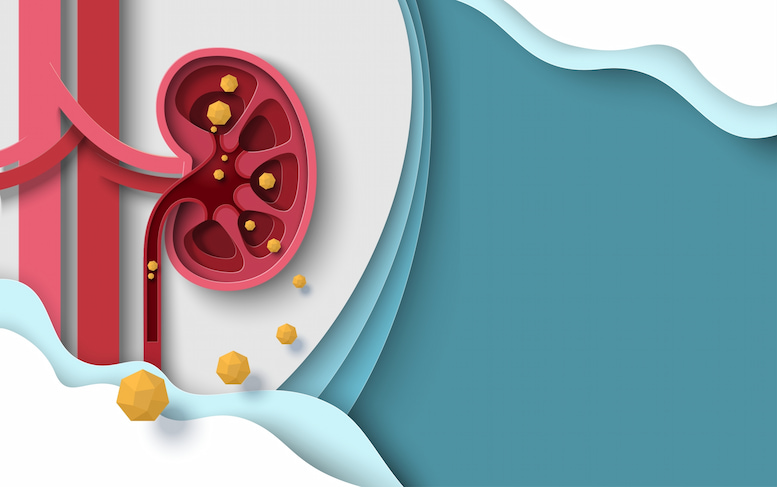Nephrology Treatment in Turkey
Healthy Türkiye helps you find the best nephrology treatment in Turkey at affordable prices and adopts a 360-degree service approach in all areas of health through affiliated hospitals.
- Homepage
- Medical Treatment
- Nephrology Treatment in Turkey

About Nephrology Treatment in Turkey
Nephrology treatment is successfully carried out in Turkey. Nephrology is a branch of medicine that deals with the kidneys, specifically normal renal function, kidney health preservation, kidney disease, and kidney disease treatment. A nephrologist is a doctor who specializes in the diagnosis and treatment of kidney disease.
The outcomes of testing and therapies are constantly improving as the discipline of nephrology advances. This means that patients have a better chance of being diagnosed early and receiving effective treatment. The success rate of nephrology procedures has been proven to be generally high. For example, by the end of the first year, 93% of kidney transplants are functional. However, every surgery carries dangers such as infection, severe bleeding, and organ damage. If you have kidney disorders, you have no choice but to see a nephrologist. If it is found that your illness is being caused by abnormalities in other organs, your nephrologist may collaborate with or send you to the appropriate specialist.
Nephrology treatments can include medications, blood products, surgical interventions (urology, vascular, or surgical procedures), renal replacement therapy (dialysis or kidney transplantation), and plasma exchange. Because kidney issues can have a substantial impact on the quality and duration of life, psychological support, health education, and advanced care planning are all important aspects of nephrology.
Chronic kidney disease is typically managed with the treatment of the underlying cause (such as diabetes), avoidance of kidney-toxic substances (nephrotoxins such as radiologic contrast and nonsteroidal anti-inflammatory drugs), antihypertensives, diet, and weight modification, and planning for end-stage kidney failure. Impaired kidney function has a wide-ranging impact on the body.
To offset the effects of renal failure on bone metabolism, an erythropoietin stimulating agent (ESA) may be necessary, as may activate vitamin D supplements and phosphate binders, and blood volume and electrolyte disturbances. Fluid overflow can be treated with diuretics (such as furosemide), while metabolic acidosis can be addressed with alkalis (such as sodium bicarbonate).
Immunosuppression may be used to treat autoimmune and inflammatory kidney diseases, such as vasculitis or transplant rejection. Prednisone, mycophenolate, cyclophosphamide, ciclosporin, tacrolimus, everolimus, thyroglobulin, and sirolimus are all commonly used medicines. Newer “biologic therapies” or monoclonal antibodies, such as rituximab, basiliximab, and eculizumab, are also utilized in these circumstances. Blood products such as intravenous immunoglobulin and the plasma exchange procedure are also available.
End-stage renal failure occurs when the kidneys are no longer able to meet the needs of the body. Death from kidney failure will occur without renal replacement treatment. Dialysis is a way of artificially replacing partial kidney function in order to prolong life. Renal transplantation restores kidney function by putting a healthy kidney from an organ donor into the body and developing immunologic tolerance of that organ through immunosuppression. Renal transplantation is now the most effective treatment for end-stage kidney failure, albeit its global availability is limited due to a paucity of donor organs. In general, living donor kidneys are ‘better’ than deceased donor kidneys since they last longer. Healthy Türkiye provides the best nephrology treatment in Turkey.

Nephrology Treatment Procedure in Turkey
Nephrology treatment is the subspecialty of internal medicine that focuses on the diagnosis and therapy of diseases of the kidney. Because the kidney serves so many functions, nephrologists are experts not just in basic renal problems, but also in the treatment of the systemic implications of kidney malfunction. Although early kidney disease prevention, diagnosis, and management is an important element of general internal medicine practice, nephrologists are often relied upon to help and manage more difficult or advanced nephrology diseases.
A thorough understanding of the involvement of the kidneys in other systemic diseases (such as vasculitis or heart failure) is a primary role of nephrologists, and due to the central role of the kidney in maintaining blood pressure, nephrologists also have expertise in the management of hypertension, particularly when it is difficult to control. Nephrologists can also aid with fluid, electrolyte, and acid-base abnormalities, which are common in advanced renal disease. The supervision of dialysis (including hemodialysis and peritoneal dialysis) in patients requiring renal replacement treatment, as well as participation in the kidney transplant procedure, is a key function of nephrology.
As your kidney disease progresses, your doctor may advise you on how to prepare for renal failure. Talking with your physician about your treatment choices early on, and making a decision before you require any of these therapies, allows you to take charge of your care. You will feel better and live longer if you receive treatment.
Healthy Türkiye is the best multispeciality consultancy providing 24/7 comprehensive care and treatment by constantly pushing care and quality for better patient outcomes. We have the most advanced technologies and experienced nephrology doctors and surgeons to perform nephrology treatment in Turkey.

We Care About Your Health
Healthy Türkiye provides the best for your health and comfort. You will feel privileged with us.
7/24 Quality Personal Assistance Throughout Your Journey
Customizable for You All-Inclusive Packages
Get the Right Advice for your Health
Nephrology Treatment Turkey
Nephrology treatments in Turkey refer to the study of disorders and problems related to kidneys and their internal structures. A nephrologist is a doctor who treats such conditions. The kidneys are responsible for filtering your blood and assisting in the creation of urine. Kidneys can develop tumors, stones, or become dysfunctional, and based on your individual medical situation, your doctor will choose the best treatment choice for you.
Chronic kidney disease is a major public health problem and its incidence is rising in Turkey and across the world. In Turkey, the number of individuals with end-stage renal disease who require renal replacement treatment has increased during the previous two decades. Diabetic nephropathy, hypertension, and chronic glomerulonephritis are the three most frequent causes of chronic kidney disease.
Hemodialysis is the most commonly used renal replacement therapy technique, followed by kidney transplantation and peritoneal dialysis. During the last decade, there has been a significant rise in the number of living donor kidney transplants conducted. One of the primary issues with renal replacement therapy is the limited frequency of transplants performed using the kidneys of dead donors. Survival rates for patients and grafts are equivalent to those in Western nations. The most efficient and cost-effective approaches to prevent or delay the development of end-stage renal disease and possible implications include early detection of chronic kidney disease and elimination of risk factors for progression.

How Is Nephrology Treatment Performed in Turkey?
Nephrology treatment in Turkey is a medical science dealing with kidney diseases. If you see a nephrologist, they may be involved in a variety of tests and treatments, as well as interpreting the results. Nephrologists can conduct a wide range of tests, procedures, and treatments due to their knowledge of internal medicine and nephrology.
However, blood and urine tests are the most frequently used diagnostics to detect or monitor renal disorders. The kidneys produce urine by filtering excess fluid and waste from the circulation. As a result, blood and urine tests may frequently indicate whether or not the kidneys are functioning adequately. Urine testing can also detect abnormal amounts of proteins associated with kidney disease.
Laboratory test for Nephrology Treatment in Turkey: A wide range of tests can be applied to assess the function of your kidneys. These examinations are typically performed on either a blood or urine sample.
Blood tests (GFR): This test determines how efficiently your kidneys filter your blood. In renal disease, GFR begins to decrease below normal values.
Serum creatinine: Creatinine is a waste product that is found in greater levels in the blood of persons who have renal disease.
Blood urea nitrogen (BUN): As with creatinine, finding high levels of this waste product in the blood is a sign of kidney disease.
Urine tests (Urinalysis): This urine sample might be tested with a dipstick for pH as well as the presence of abnormal amounts of blood, glucose, protein, or bacteria.
Albumin/creatinine ratio (ACR): The level of the protein albumin in your urine is determined by this urine test. The presence of albumin in the urine indicates renal disease.
24-hour urine collection: This method uses a special container to collect all of the urine that you create during a 24-hour period. Further testing might be performed on this sample.
Creatinine clearance: This is a measure of creatinine from both a blood sample and a 24-hour urine sample that’s applied to calculate the amount of creatinine that’s exited the blood and moved to the urine.
A nephrologist may undertake the following operations alone or in collaboration with other experts, in addition to examining and interpreting the outcomes of your laboratory tests; dialysis, involving the insertion of the dialysis catheter, and imaging examinations of the kidneys, including ultrasound, CT scans, and X-rays.

Types of Nephrology Treatment in Turkey
Many types of nephrology treatments are successfully performed in Turkey. You might choose one of three treatment options to filter your blood and take over a small part of the work your damaged kidneys can no longer do. Another option offers care without replacing the work of the kidneys. None of these treatments might help your kidneys get better. However, they all will help you feel better.
Each kind has benefits and drawbacks. It’s critical to keep in mind that, even after selecting a certain form of dialysis, you always have the choice to switch, preventing you from feeling “locked in” to any one type of dialysis. For medical, health, or lifestyle reasons, you may not be a good candidate for a certain type of dialysis. To choose which is best for you, be sure to educate yourself on each type and consult a healthcare practitioner. You may examine some of the advantages and disadvantages of the various forms of dialysis using the charts below.
Hemodialysis uses a machine to move the blood through a filter outside the body, removing wastes.
Peritoneal dialysis uses the lining of the belly to filter the blood inside the body, removing wastes.
A kidney transplant is a surgery to place a healthy kidney from a person who has just died, or from a living person, into the body to filter the blood.
Conservative management It treats renal failure without a transplant or dialysis. As long as possible, you’ll work with your medical team to manage your symptoms, maintain your kidney function, and improve your quality of life.
Living with kidney failure is difficult, and it works best if you keep to your treatment plan.
At each visit, go over your medications with your doctor. You are the only one who knows how your body reacts to each of your medications. It is critical that your physician be aware of the medications you are taking.
It takes time to understand the treatment you choose and to adjust to the fact that you require it. Each method of treatment has advantages and disadvantages. Your treatment option will have a significant impact on your daily life. You can choose the best treatment option for you if you understand the distinctions between them. The more you understand about the various types of treatment, the better equipped you will be to make a decision.
Recovery from Nephrology Treatment in Turkey
When you have nephrology treatment, restoration to good health results from organ functional recovery that is dependent on the prior state of health, the severity of illness, and the process of care. Although the severity stage may be determined by the extent of structural and functional derangement at any point in time, measuring recovery is sometimes challenging since it involves information of the organ’s prior condition as well as continuing treatments. The progression or recovery of illness represents both the nature and amount of damage and repair, as well as the related comorbidities and treatment. Furthermore, the correlation between the level of recovery and short- and long-term consequences requires precise descriptions and acknowledgment of events occurring during and after the disease.
After laboratory testing (blood and urine tests) and imaging tests, you should be able to leave the hospital right away. However, a biopsy may necessitate an overnight stay. However, you may need to stay in Turkey for a few more days while the findings are being processed. When the findings are ready, your nephrologist will go through them with you at a follow-up consultation. After a kidney transplant, you should expect to be in the hospital for 5 to 10 days, with a further 7 to 14-day stay in Turkey. Attend all planned follow-up appointments with your nephrologist during your stay.
Recovery time varies on the type of surgery you have. You should be able to resume your usual daily activities immediately after laboratory and imaging testing, but your nephrologist may urge you to rest for the rest of the day. Avoid heavy activities for 2 to 3 days after a biopsy. Because a kidney transplant is a significant procedure, the recovery period before returning to work and other typical activities may last up to 8 weeks.
Your nephrologist will provide you with aftercare instructions, and you will also need to make healthy lifestyle adjustments to keep your kidney healthy after treatment. You will need to have regular checks to see how well your new kidney is working, and you will need to take medication for the rest of your life, including immunosuppressants, to keep your immune system from rejecting and attacking your new kidney.
When Do You Need Nephrology Treatment in Turkey?
It is very crucial for you to get an examination for nephrology treatment if you have any symptoms. Most patients do not see a nephrologist unless their primary care doctor refers them. Seeing a nephrologist usually indicates that you have kidney-related symptoms from an unknown source or that you have health conditions that only a renal expert can cure. If you have any of the following signs or symptoms, you may be sent to a nephrologist:
Chronic Urinary Tract Infections: If you have a lot of urinary tract infections (UTI), which are usually bladder infections, you are more likely to have the infection spread to your kidneys. You are also more likely to acquire renal disease, irreversible kidney damage, or even kidney failure as a result of this. Chronic UTI symptoms, particularly blood in the urine, fever, and exhaustion, might potentially be indicative of bladder or kidney cancer in its early stages.
Recurring Kidney Stones: Kidney stones are mineral- or salt-based deposits within your kidneys that cause significant discomfort while travelling through your urinary tract. If you have a lot of kidney stones, it means your kidneys aren’t filtering waste effectively and are allowing deposits to build up. Kidney stones can also form and begin to impede glomerular filtration (a portion of the urine process), lowering the filtration rate. Any blockages can cause kidney damage and lead to chronic kidney disease.
Foamy urine: Protein can be found in your urine if it is foamy or bubbling. Proteinuria is a disorder that can occur due to a variety of factors, some of which are fairly harmless, while others are more likely to cause kidney injury. Your urine naturally contains some protein waste, but this protein goes undetected. Only when there is a lot of protein in the urine will you notice froth or bubbles.
This protein spillover can cause other symptoms like muscle cramping, shortness of breath, and tiredness, and might indicate more moderate stages of chronic kidney disease or early kidney failure. Your nephrology specialist will likely do a series of blood tests, such as blood urea nitrogen, serum creatinine, and protein-creatinine ratio, to check your blood and kidney health.
Itchy Skin and Joint or Bone Pain: If you experience bone and joint discomfort, as well as itchy skin, you may have renal bone disease, also known as mineral and bone problems. This issue can arise in conjunction with renal disease and occurs when the kidneys are unable to maintain the quantity of calcium and phosphorus your bones require. If left untreated, this condition can cause bone deterioration as well as heart and blood vessel disorders.
Nephrologists are medical specialists that specialize in kidney treatment. Your nephrologist can evaluate you, run blood and urine tests, diagnose your disease, and treat it with medicine or surgery. A nephrologist may be referred to you by your primary care physician. If necessary, they may collaborate with additional professionals to treat you.
It’s a good idea to make notes and arrange your health information before your consultation. Make a point of asking any questions that come to mind. Your nephrologist wants to help you identify your disease, treat or manage it as effectively as possible, and provide you with support.
What Are the Differences Between Nephrology and Urology?
Because they both involve the kidneys, the specialties of nephrology and urology have some overlap. A nephrologist is concerned with diseases and conditions that directly affect the kidney, whereas a urologist is concerned with diseases and problems that can impact both the male and female urinary systems. The urinary tract contains not only the kidneys but also the ureters, bladder, and urethra. A urologist also treats male reproductive organs such as the penis, testes, and prostate.
2026 Cost of Nephrology Treatment in Turkey
All types of medical attention, like nephrology treatment, are very affordable in Turkey. Many factors are also included in determining the cost of nephrology treatment in Turkey. Your process with Healthy Türkiye will last from the time you decide to have a nephrology treatment in Turkey until the time you are fully recovered, even if you are back home. The exact cost of a nephrology treatment procedure in Turkey depends on the type of operation involved.
The cost of nephrology treatment in Turkey does not demonstrate many variations in 2026. Compared to costs in developed countries like the United States or the UK, nephrology treatment costs in Turkey are relatively low. So, it’s no wonder patients from across the world visit Turkey for nephrology treatment procedures. However, price is not the only factor affecting choices. We suggest looking for hospitals that are safe and have nephrology treatment reviews on Google. When people decide to seek medical help for nephrology treatment, they will not only have low-cost procedures in Turkey, but also the safest and best treatment.
At clinics or hospitals contracted with Healthy Türkiye, patients will receive the best nephrology treatment from specialist doctors in Turkey at affordable rates. Healthy Türkiye teams provide medical attention, nephrology treatment procedures, and high-quality treatment to patients at a minimum cost. When you contact Healthy Türkiye assistants, you can get free information about the cost of nephrology treatment in Turkey and what this cost covers.
Why Is Nephrology Treatment Cheaper in Turkey?
One of the main considerations before traveling abroad for nephrology treatment is the cost-effectiveness of the whole process. Many patients think that when they add flight tickets and hotel expenses to their nephrology treatment costs, it will become very expensive to travel, which is not true. Contrary to popular belief, round-trip flight tickets to Turkey for nephrology treatment can be booked very affordably. In this case, assuming you are staying in Turkey for your nephrology treatment, your total travel expense of flight tickets and accommodation will only cost less than any other developed country, which is nothing compared to the amount that you are saving.
The question “Why is nephrology treatment cheaper in Turkey?” is so common between patients or people simply curious about getting their medical treatment in Turkey. When it comes to nephrology treatment prices in Turkey, there are 3 factors allow cheaper prices:
The currency exchange is favorable for whoever looking for nephrology treatment has a euro, dollar, or pound;
The lower cost of living and cheaper overall medical expenses such as nephrology treatment;
For nephrology treatment, incentives are given by the Turkish Government to medical clinics working with international clients;
All these factors allow for cheaper nephrology treatment prices, but let’s be clear, these prices are cheaper for people with strong currencies (as we said, euro, dollar, Canadian dollar, pound, etc).
Every year, thousands of patients from all over the world come to Turkey to get nephrology treatment. The success of the healthcare system has increased in recent years, especially for nephrology treatment. It’s easy to find well-educated and English-speaking medical professionals in Turkey for all kinds of medical treatment such as nephrology treatment.
Why Choose Turkey for Nephrology Treatment?
Turkey is a common choice among international patients seeking advanced nephrology treatment. Turkey’s health procedures are safe and effective operations with a high success rate like nephrology treatment. The increasing demand for high-quality nephrology treatment at affordable prices has made Turkey a popular medical travel destination. In Turkey, nephrology treatment is performed by highly experienced and trained doctors with the most advanced technology in the world. nephrology treatment is done in Istanbul, Ankara, Antalya, and other major cities. The reasons for choosing nephrology treatment in Turkey are as follows:
High-quality hospitals: Joint Commission International (JCI) accredited hospitals have dedicated nephrology treatment units that are specially designed for patients. International and national strict protocols provide effective and successful nephrology treatment for patients in Turkey.
Qualified experts: The expert teams include nurses and specialist doctors, together to carry out nephrology treatment according to the patient’s needs. All the included doctors are highly experienced in performing nephrology treatment.
Affordable price: The cost of nephrology treatment in Turkey is affordable compared to Europe, the USA, the UK, Singapore, Australia, etc.
The high success rate: Highly experienced specialists, the best available technology, and stringently followed safety guidelines for post-operative care of the patient, resulting in a high success rate for nephrology treatment in Turkey.
Is Nephrology Treatment Safe in Turkey?
Did you know Turkey is one of the most visited destinations for nephrology treatment in the world? It is ranked one of the most visited tourist destinations for nephrology treatment. Over the years it has also come to be a very popular medical tourism destination too with many tourists coming in for nephrology treatment. There are so many reasons why Turkey stands out as a leading destination for nephrology treatment. Because Turkey is both safe and easy to travel to too with a regional airport hub and flight connections to pretty much everywhere, it is preferred for nephrology treatment.
The best hospitals in Turkey have experienced medical staff and specialists who have performed thousands of medical services such as nephrology treatment. All procedures and coordination related to nephrology treatment are controlled by the Ministry of Health in accordance with the law. Over many years, the greatest progress in medicine has been observed in the field of nephrology treatment. Turkey is known among foreign patients for its great opportunities in the area of nephrology treatment.
To emphasize, besides the price itself, the key factor in selecting a destination for nephrology treatment is certainly the standard of medical services, the hospital staff’s high expertise, hospitality, and the safety of the country.
All-Inclusive Packages for Nephrology Treatment in Turkey
Healthy Türkiye offers all-inclusive packages for nephrology treatment in Turkey at much lower prices. Extremely professional and experienced doctors and technicians carry out high-quality nephrology treatment. The cost of nephrology treatment in European countries can be quite expensive, especially in the UK. Healthy Türkiye provides cheap all-inclusive packages for a long and short stay of nephrology treatment in Turkey. Because of many factors, we can provide you with many opportunities for your nephrology treatment in Turkey.
The price of nephrology treatment differs from other countries due to medical fees, staff labor prices, exchange rates, and market competition. You can save much more on nephrology treatment compared to other countries in Turkey. When you purchase a nephrology treatment all-inclusive package with Healthy Türkiye our healthcare team will present of hotels for you to choose from. In nephrology treatment travel, the price of your stay will be included in the all-inclusive package cost.
When you purchase nephrology treatment all-inclusive packages through Healthy Türkiye, you will always receive VIP transfers. These are provided by Healthy Türkiye, which is contracted with highly qualified hospitals for nephrology treatment in Turkey. Healthy Türkiye teams will organize everything about nephrology treatment for you and have you picked up from the airport and safely brought to your accommodation. Once settled in the hotel, you will be transferred to and from the clinic or hospital for nephrology treatment. After your nephrology treatment has been successfully completed, the transfer team will return you to the airport in time for your flight home. In Turkey, all packages of nephrology treatment can be arranged upon request, which relaxes the minds of our patients.
The Best Hospitals in Turkey for Nephrology Treatment
The best hospitals in Turkey for nephrology treatment are Healthy Türkiye, Memorial Hospital, Acıbadem International Hospital, and Medicalpark Hospital. These hospitals attract patients from all over the world seeking nephrology treatment due to their affordable prices and high success rates.
Best Doctors and Surgeons in Turkey for Nephrology Treatment
The best doctors and surgeons in Turkey for nephrology treatment are highly skilled professionals who offer specialized care and advanced procedures. With their expertise and state-of-the-art techniques, these specialists ensure that patients receive high-quality nephrology treatment and achieve optimal health results.

Frequently Asked Questions
Nephrologists, also referred to as kidney doctors, specialize in kidney care and generally treat chronic kidney disease (CKD) and manage dialysis care for people with end-stage renal disease.
Nephrologists are medical specialists who specialize in the diagnosis and treatment of diseases of the kidney and urinary systems, such as inflammation of the kidneys, chronic kidney disease, hypertension, or effects of high blood pressure and diabetes on the kidneys, and side effects of medications on the kidneys.
They are doctors who have specialized in diagnosis as well as the treatment of diseases of the urinary system in both women and men as well as the reproductive system of males with its disorders. Urinary problems like incontinence, tumors, and cysts can be treated by them. They also perform kidney surgeries.
Generally, treatment for acute kidney failure, especially if severe, requires hospitalization. If there aren't any other problems, the kidneys may heal themselves. In most other circumstances, acute kidney failure can be treated if it's caught early.
The areas of urology do deal with the kidneys and some disorders that affect them. However, some kidney issues should be treated by a nephrologist rather than a urologist. On the other hand, there are some cases that urologists should treat rather than nephrologists.
Nephrology is kidney medicine and is a type of internal medicine. It is concerned with the diagnoses, treatment and management of kidney functions and renal (kidney) replacement treatment, such as dialysis and kidney transplantation.
The kidney is a noun word, renal is an adjective, and nephro is the root of a number of kidney-related words.
